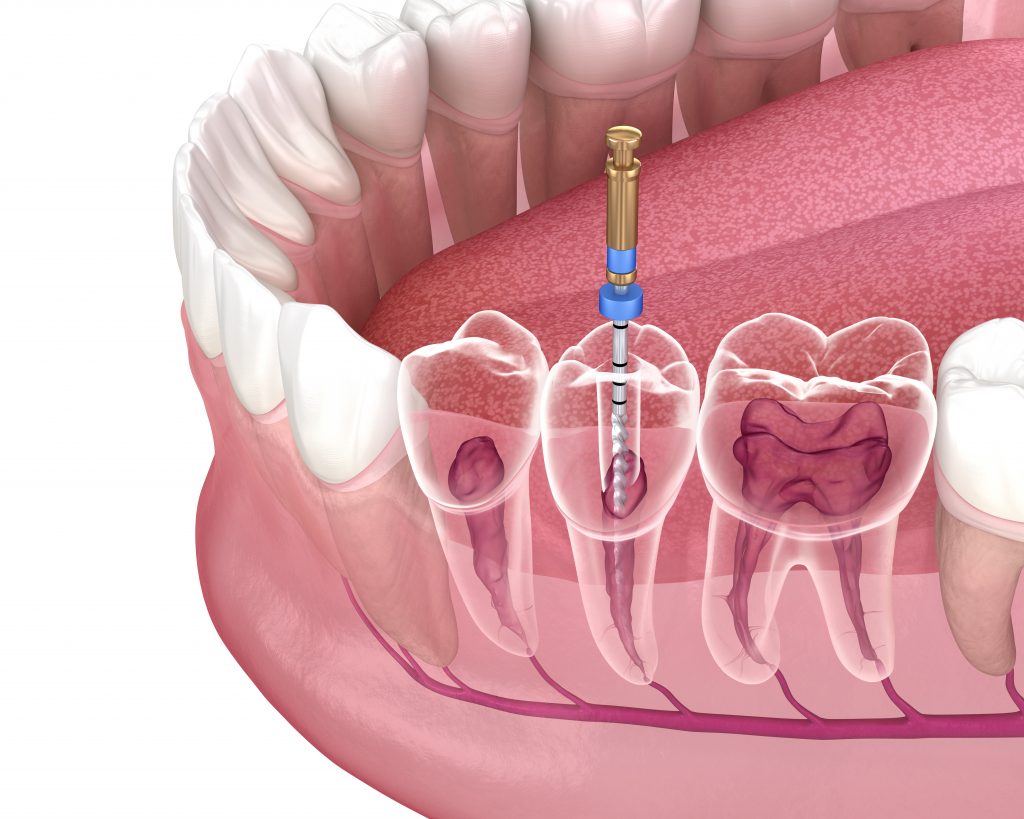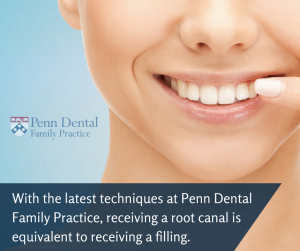Resource Library
Start Reading

At Penn Dental Family Practice, our endodontic specialists are here to guide you every step of the way during your root canal procedure. This includes helping you reduce the risk of an infected root canal, before and after the procedure.
Root canals tend to have a bad rap when it comes to dental procedures. Many fear that a root canal can be extremely painful, and perhaps a traumatizing experience. They may even be worried about a root canal infection developing. The truth is that root canals don’t have to be that way at all. In fact, with the latest techniques, the experience of receiving a root canal is equivalent to receiving a filling.

Endodontists are careful of infections when it comes to root canals. Some infections, which could be caused by an abscess, form before the root canal is performed, while other infections occur after the root canal procedure has been completed.
Why does this happen? Did the dentist not perform the root canal correctly? Let’s take a look at the procedure and what it entails.
A root canal is an endodontic procedure which is typically performed over one to two visits to the endodontist. An endodontist is a root canal specialist who knows the anatomy of your tooth, and is an expert at diagnosing and treating tooth pain. The root canal procedure itself is relatively simple.
First, the tooth is examined and numbed. Then, through an opening in the crown of the tooth, the pulp is removed from the pulp chamber and root canals. Once the pulp is removed, the space is filled with a biocompatible material. Typically, this opening will be topped with a temporary filling. After this procedure is complete, your dentist will put a crown or a similar prosthetic over the tooth to protect it.
Root canals are needed when a tooth becomes so full of decay that it reaches the pulp—or tissue—of the tooth. The pulp is made up of nerves and blood vessels, which accounts for the pain one can experience. Sometimes, there can be a trauma to the tooth, which may cause discoloration (sometimes indicating that the tooth is dead), or an abscess can occur. This can even happen without the overwhelming amount of decay that you may think.

In these instances, you may still need a root canal. If you are experiencing significant tooth pain while eating, or pain and sensitivity due to eating or drinking hot things, it may be time to talk with your dentist about a root canal.
If you are experiencing an infection before your root canal procedure is performed, you may have an antibiotic prescribed to you in order to treat the infection. If you have an active infection during root canal therapy, there is a chance the infection can block the anesthetic from working and numbing the area. It is important to talk with your dentist about your symptoms, and follow their recommendations for treating the infection first, then the full tooth.
Typically, you should not have immense pain after a root canal procedure. You may have some tenderness in your jaw, as your mouth was open for a period of time, and it may become sore. However, there should be absolutely no feeling in that tooth since the nerve has been removed.
Yes. It is not typical to develop an infection after the root canal procedure has been finished, but there is always a small risk of this happening. Root canal infections can appear anywhere from a week to a decade after the procedure has been performed. Some of the reasons for these infections include:

When a root canal is treated for the second time, it is more commonly referred to as a retreatment. A retreatment is performed the same way as a typical root canal procedure, including the use of antibiotics. If a retreatment is not sufficient, there is a surgery that can be performed known as an apicoectomy. This procedure relieves the infection by accessing it through the bony area around the tooth, instead of through the top of the tooth.
A root canal infection is rare, and getting the best care available can help to reduce your risks. At Penn Dental Family Practice, our endodontists not only treat patients, but are also teaching the dentists of tomorrow.
For more information about root canal procedures and infections, make an appointment with Penn Dental Family Practice, or give us a call at 215-898-PDFP (7337).